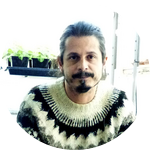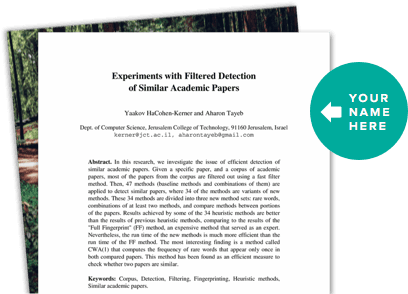About This Project
Plants have a remarkable way of fighting off pathogens. Unlike animals, they don’t rely on immune cells or antibodies; every plant cell can detect invaders and remember them. Through chemical signals, plants prepare their entire system for a stronger defense next time. We aim to uncover hidden genes behind this immune memory, unlocking the potential to boost plant defenses naturally and improve crop productivity—a breakthrough for agriculture and food security.
Ask the Scientists
Join The DiscussionWhat is the context of this research?
It is obvious, but plants cannot move to escape stress like animals do, yet they survive by reprogramming their gene expression to face challenges such as drought, extreme temperatures, mechanical damage, and pathogens. Like animals, plants can "remember" past infections, but unlike them, this memory prepares every cell in the organism, not just specialized immune cells. This process relies on hormones, proteins, and major changes in gene expression. While only a few key genes driving immune memory have been identified, discovering more could revolutionize how we enhance disease resistance and crop productivity.
What is the significance of this project?
Plants have evolved remarkable defense systems, but can we enhance them? While evolution has shaped their resilience, crops are far removed from their wild ancestors. Through human selection for higher yields, essential genes for defense have been lost. Identifying the 'master genes' that control plant immune memory is vital, as it offers the potential to develop targeted, safe technologies for improving crop performance. This project focuses on uncovering these key genes, providing valuable data that could revolutionize crop protection strategies and enhance food security.
What are the goals of the project?
Our goal is to identify key genes involved in plant immune memory. We will use a technique called GWAS (Genome-Wide Association Study) to compare more than 150 different plant varieties. These varieties have the same genes but small differences in their DNA, known as SNPs. We will investigate whether specific SNPs correlate with either enhanced or impaired immune memory in these varieties. Once we identify these SNPs, we will determine which genes they are located in, helping us pinpoint the genes most likely responsible for immune memory. This will guide us in studying the genetic basis of plant defense.
Budget
Although we have plant growth incubators in the lab, space is limited. To begin this experiment without interrupting ongoing projects, it is crucial to acquire an additional incubator to provide the necessary space.
Endorsed by
 Project Timeline
Project Timeline
We will start in March 2025 (adjustable). First, we’ll test three inducers of immune memory in plants by growing them in petri dishes, measuring root length as an indirect, easy-to-read marker of inducer activity. This will take about three months. Next, we’ll analyze the data with bioinformatics for one month. After identifying potential genes, we’ll test plant varieties with SNPs impairing immune memory through plant-pathogen interaction assays, taking an additional four months.
Dec 27, 2024
Project Launched
Jun 01, 2025
First assay - Conducting the experiment with the three inducers of immune memory.- Measurement of root length and initial data collection.
Jul 01, 2025
Bioinformatics analysis- Analyzing the data and identifying key genetic markers (SNPs) linked to immune memory.- Interpretation of results and identification of potential genes.
Aug 01, 2025
Selection of plant varieties for further testing- Identifying plant varieties with SNPs impairing immune memory.- Preparing for plant-pathogen interaction assays.
Dec 01, 2025
Plant-pathogen interaction assays - Testing plant varieties for immune memory response.- Gathering final experimental data.
Meet the Team
Team Bio
I lead a team studying the fascinating process of how plants reprogram every cell's genome to defend themselves. My passion focuses on applying this knowledge to boost crop health and yield. I hold a PhD in plant-pathogen interactions and epigenetics from the National University of Córdoba, with postdoctoral studies on small RNAs. With over 15 years of research at CONICET, I’ve published widely and now, nearing my forties, mentor new scientists. Publicationsand our team website are attached.
Damian cambiagno
I am deeply passionate about science, driven by the idea that research can improve lives and help preserve our planet. My work is more than just a job—it’s a way to contribute to the future, and this motivates me to give my best every day. I’m a devoted husband and father of two incredibly curious children. In their curiosity, not only are they fascinating because of their innocence, but they also help me find the purest form of wonder, inspiring me to ask the simple questions in life and biology that are so crucial for scientific progress. I also enjoy cooking, both as part of my daily routine and for special occasions. Another passion of mine is fish-keeping, particularly my beloved discus fish—just take a look at them, and you’ll see why!
Lab Notes
Nothing posted yet.
Additional Information
We believe starting with this small project is crucial for several reasons. First, it will be carried out in Argentina, a country where scientific funding is currently limited, making it a valuable opportunity to keep moving despite the financial challenges. This project will also generate resources for future studies, serving as a foundation for more detailed research on specific genes involved in plant immune memory. Last but not least, it will provide an excellent training opportunity for an undergraduate student, who will work alongside a growing team of a PhD student and myself. This experience will be essential for her career, enabling her to complete her degree while contributing to meaningful research in molecular biology and biotechnology.
Project Backers
- 0Backers
- 0%Funded
- $0Total Donations
- $0Average Donation



